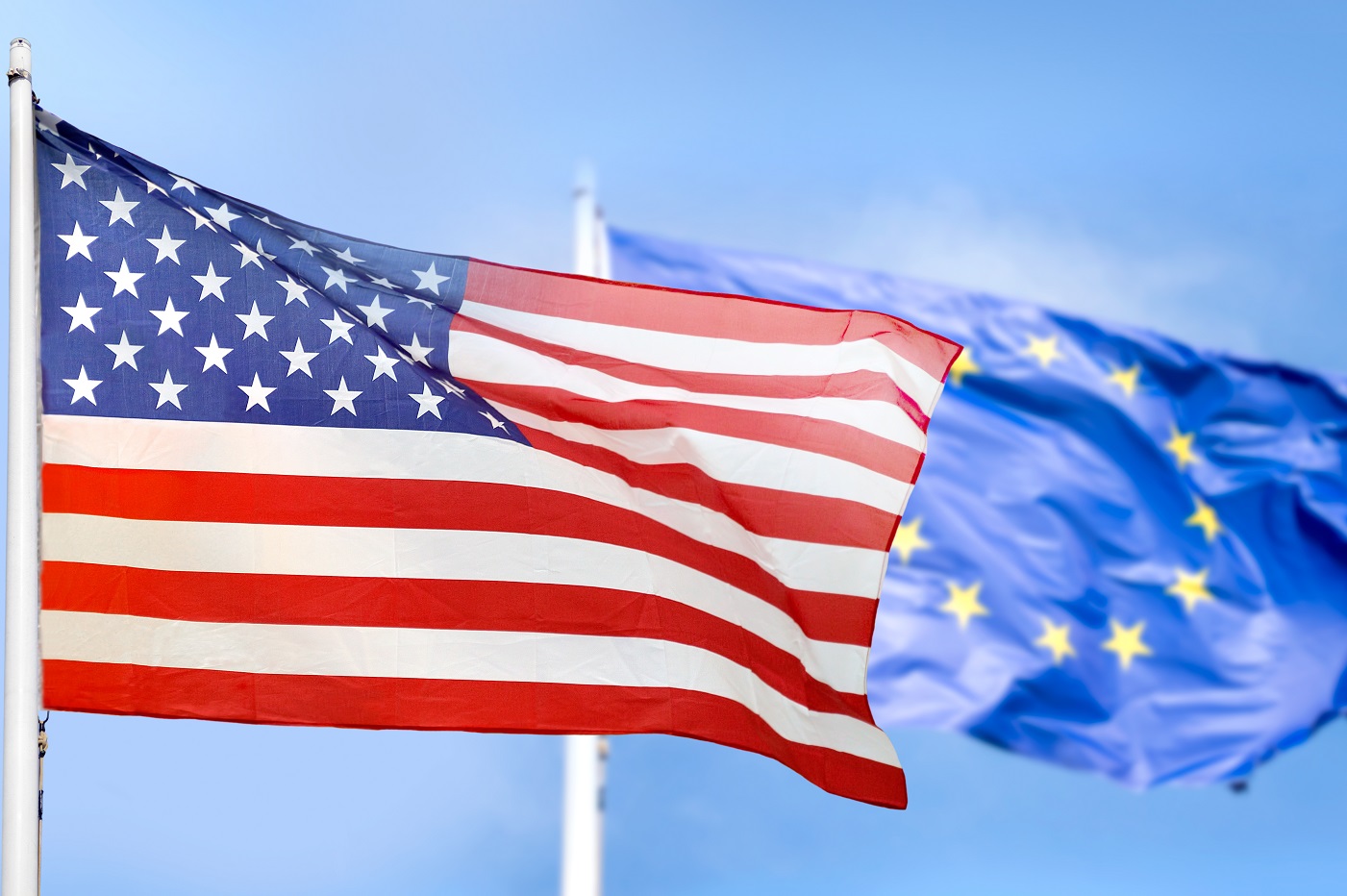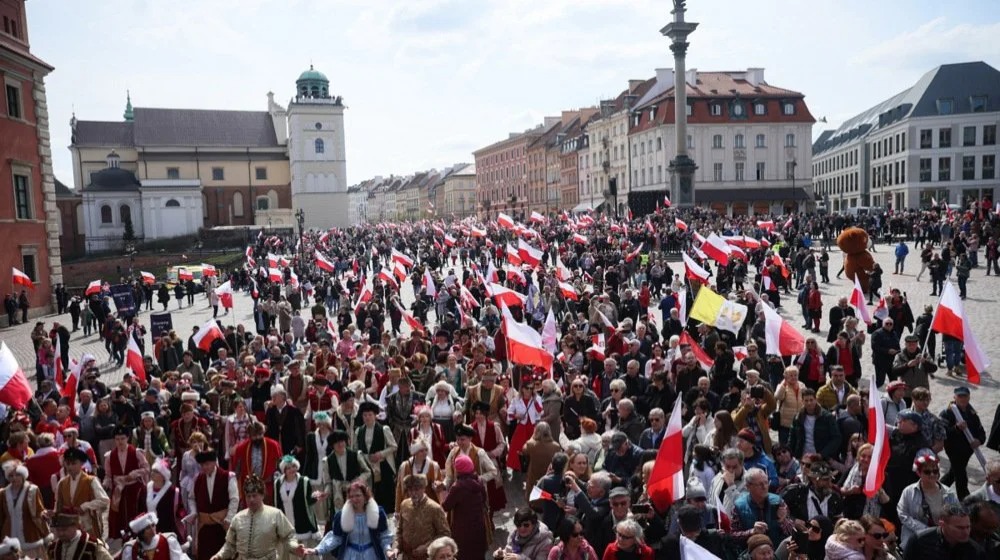
Europe between two fires: Trump's war is forcing the EU to do what was unthinkable until now
More than three years after the start of Russia's invasion of Ukraine, Europe's energy security remains seriously threatened, despite efforts to free the continent from dependence on Russian fossil fuels. Although the European Union set an ambitious goal immediately after the outbreak of the conflict to completely cut energy ties with Moscow by 2027, the reality on the ground paints a different picture – one full of challenges, uncertainty, and increasingly evident cracks in that strategy.
Under market pressure, but also due to increasingly unstable political relations with key partners such as the US, European companies are quietly but more frequently considering what was almost unthinkable just a year ago: the return of Russian gas, including direct cooperation with the state energy giant – “Gazprom.”
During the 2022–2023 energy crisis, American liquefied natural gas (LNG) was crucial in filling the gap caused by the halt of Russian deliveries. However, with the return of Donald Trump to the political scene – and his increasingly open strategy of using energy as a negotiating tool – European companies are becoming more cautious.
Trump makes no secret of his ambition for American energy resources to become an instrument in trade negotiations with the EU, further undermining European leaders’ trust in the stability and predictability of US supply. In such a climate, voices calling for a renewal of ties with Russia – even on a limited scale – are growing louder, though still mostly informal – writes Nova.
Major Companies
One of the first to openly speak about the possible return of Russian gas was Didier Holleaux, Executive Vice President of the French company “Engie.” He believes that in the event of a “reasonable peace” in Ukraine, Europe could consider importing 60 to 70 billion cubic meters of Russian gas annually – which would cover between 20 and 25% of Europe’s needs. That is significantly less than the 40% share Russian gas held before the war, but still a substantial amount.
A similar view was expressed by Patrick Pouyanné, CEO of “TotalEnergies,” who warns against excessive dependence on American LNG. His company is a major exporter of American gas but is also involved in the sale of Russian LNG through the private firm “Novatek.” Pouyanné claims that the EU must turn to greater source diversification, because “relying on one or two suppliers poses a serious strategic risk.”
Germany Between Reality and Politics
Unlike France, which has a more diversified energy mix thanks to nuclear power, Germany built its industrial power over decades by relying on cheap Russian gas. That dependence made it particularly vulnerable after the outbreak of the war in Ukraine.
In the Leuna chemical complex, one of the country’s key industrial centers, more and more executives from companies such as “Dow Chemical” and “Shell” are openly calling for a return to Russian supply. Christoph Günther, director of the company “InfraLeuna,” emphasizes that Germany’s chemical industry has recorded five consecutive quarters of decline – something not seen in decades. According to him, restarting gas pipelines would have a greater impact on cost reduction than any currently available state subsidy.
German public opinion is also beginning to shift. Research shows that one-third of Germans support the return of Russian gas, while in eastern regions such as Mecklenburg-Western Pomerania that percentage reaches 49%. Klaus Paur, director of the petrochemical company “Leuna-Harze,” states directly: “We need Russian gas and cheap energy – regardless of where it comes from. We must keep control over costs, and that is not possible without Nord Stream 2.”
Trump’s Gas – Partner or Weapon?
In 2024, American LNG accounted for 16.7% of the EU’s energy imports, placing it behind Norway (33.6%) but still ahead of Russia (18.8%). However, the Russian share is expected to fall below 10%, given the closure of Ukrainian transit routes. What remains mainly comes in the form of LNG, mostly through the company “Novatek.”
The European Commission has announced an increase in US LNG imports, but it is also aware of the growing risks. The Trump administration has made it clear that gas will be used as a means of pressure to reduce the EU’s trade surplus.
Tatiana Mitrova, an analyst at Columbia University, warns that American gas is no longer a “neutral commodity” but is becoming a geopolitical tool. If a trade war erupts, there is a real possibility that the US will limit gas exports, especially in the event of increased domestic demand due to industrial growth and artificial intelligence.
Legal Battles and Quiet Diplomacy
After “Gazprom” failed to deliver the contracted gas volumes at the height of the crisis, several European firms initiated arbitration proceedings. Courts ruled in favor of companies such as “Uniper,” which was awarded 14 billion euros, and Austria’s OMV, which received 230 million euros. German firm RWE is seeking an additional two billion, while others, like “Engie,” have yet to reveal specific claims.
Didier Holleaux suggests that one possible route for restoring cooperation with Russia would be to resume gas deliveries via Ukraine – as part of efforts to comply with arbitration rulings. “You want to return to the market? Fine – but first pay what you owe,” Holleaux told “Gazprom.”
Ukrainian Fears
The possibility of returning to Russian gas raises concerns not only in Brussels but also in Kyiv. Maxim Timchenko, CEO of the Ukrainian company DTEK, expresses hope that Europe will remain consistent and not repeat past mistakes. “It’s hard for me to say this as a Ukrainian, but I believe that European politicians have learned the lesson when it comes to relying on Russia,” he said.





